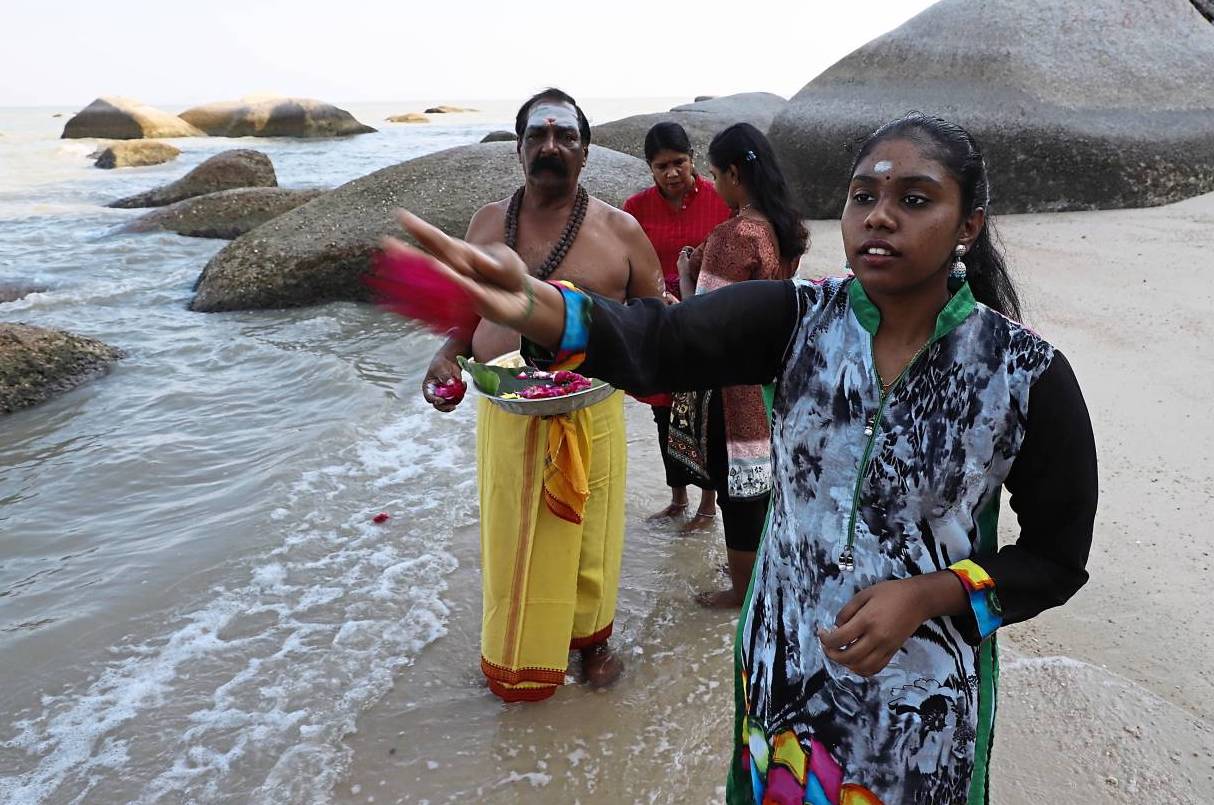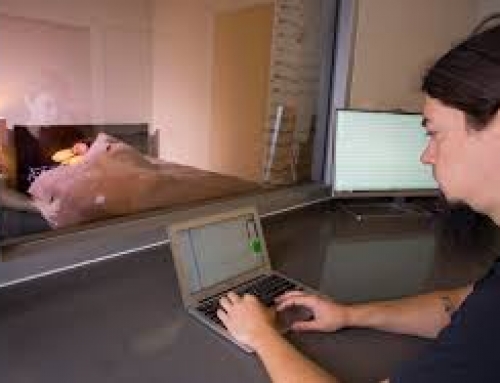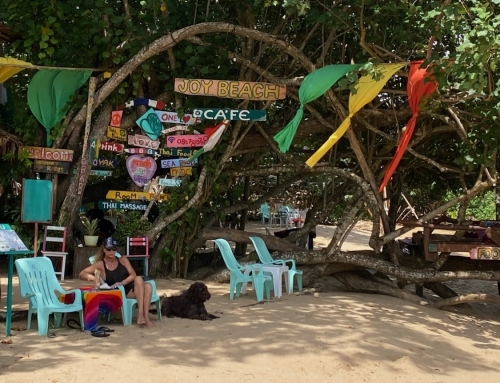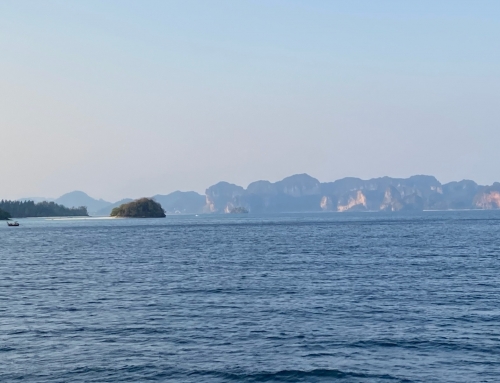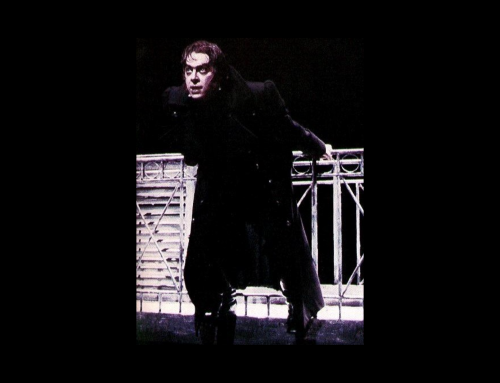Most people remember or have heard of the December 26, 2004 ‘boxing day’ Tsunami, the widest reaching modern day natural disaster with the highest number of non war related fatalities since the Spanish flu.
Penang was not directly in the line of fire from the first wave, yet it also suffered human losses, many casualties and witnessed a few miracle stories of survival. Here are two short stories passed to me from real people whom I had the pleasure of meeting while I was living there.
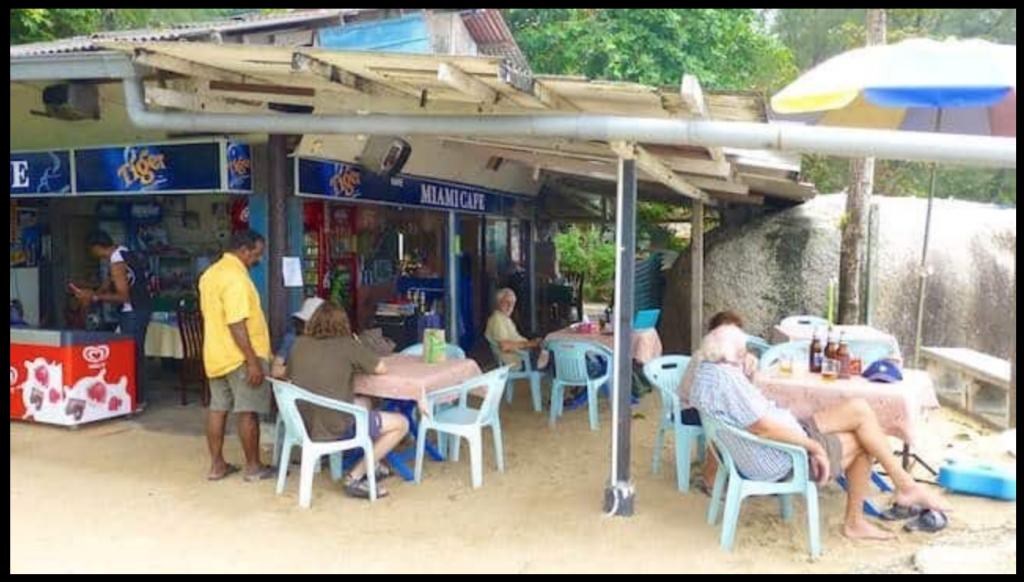
Miami Cafe on the beach
During the first few months following my arrival on the island, I set about exploring the local beaches and townships. On one such trip I came across the Miami Cafe, located down near the waters edge between Batu Ferringhi and Tanjung Bungah. It was a simple cafe run by an Indian Malaysian family.
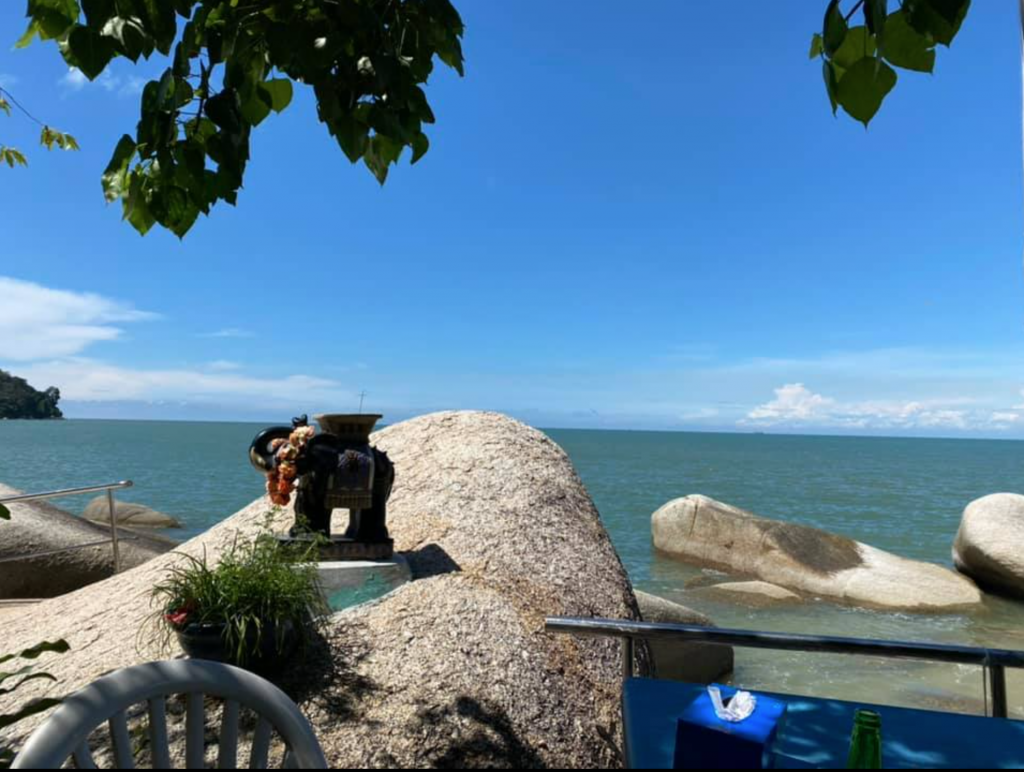
The simple elephant shrine with garland
I ordered a beer and a simple local curry dish then had a brief chat with the owner.
While waiting for the food to arrive I noticed a slightly faded laminated news story lying on the adjacent table, and started to read it. It was about a baby called Thulishi who was washed out to the sea on her baby mattress the day the tsunami struck. She was only 22 days old then. Miraculously, a second wave brought her back to the shore, still on her mattress and still asleep, from where she was rescued. It was an incredible story.
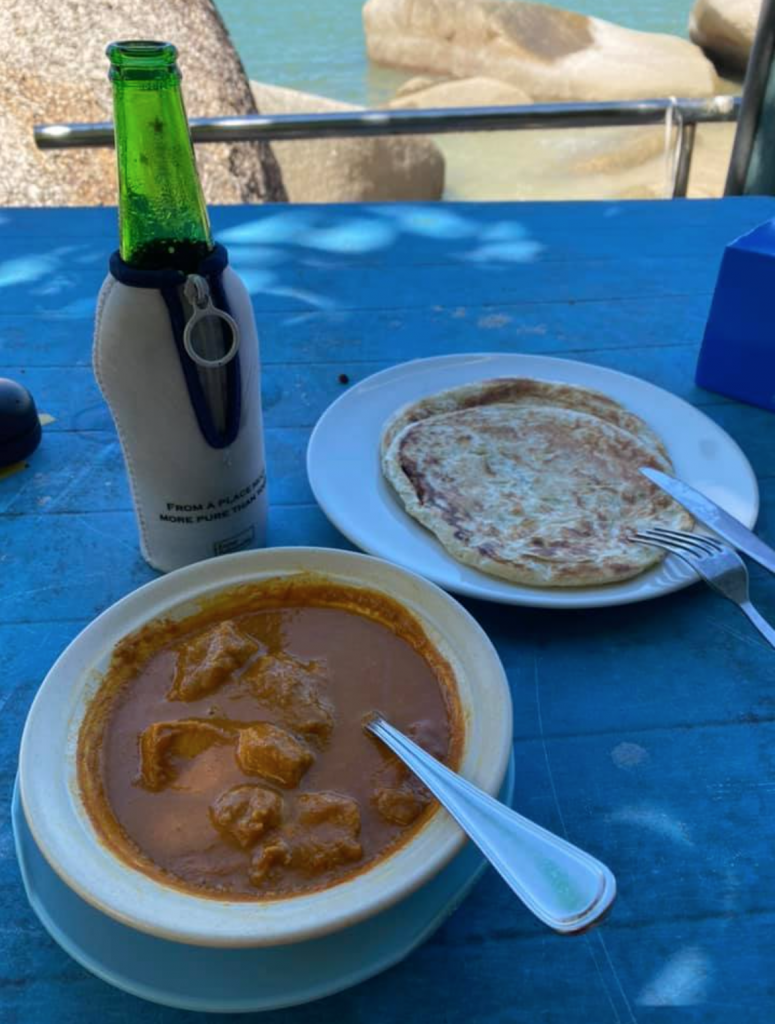
Home made chicken curry and naan bread
I took a photo of the meal, which was really good and also a couple of shots of the view, noticing how there was a porcelain Elephant fixed atop a nearby rock draped with a flower garland. I paid (not much at all!) and as I was leaving, had another look around the restaurant.
A young girl who was sitting at the back of the restaurant looked up, and her mother, the restaurant co-owner said “that’s her, that’s our daughter” with a big smile, “she is the miracle baby”.
I didn’t quite know what to say. We talked a little bit and then they went about their daily business. I thanked them for the food and service and promised to return. It struck me they were the most down to earth and ‘normal’ family I had met, considering their circumstances.
Miami Cafe is a popular spot with the local community and well supported. I did go back a couple of times before covid.
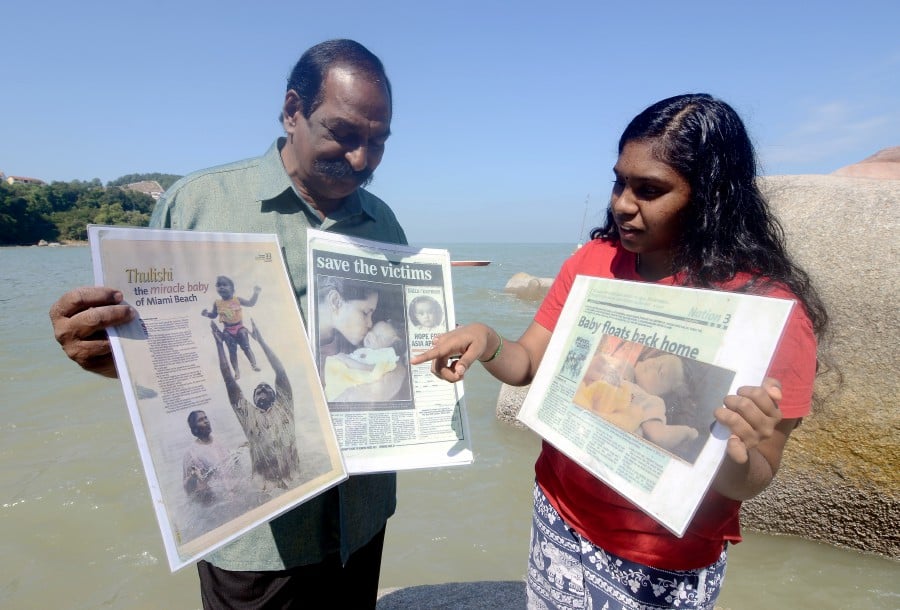
Thulishi with her father
A couple of years later I came across an article in the Star (Malaysia) written by a journalist who, when he visited the restaurant, had a very similar experience to mine. For his account of that experience, click here
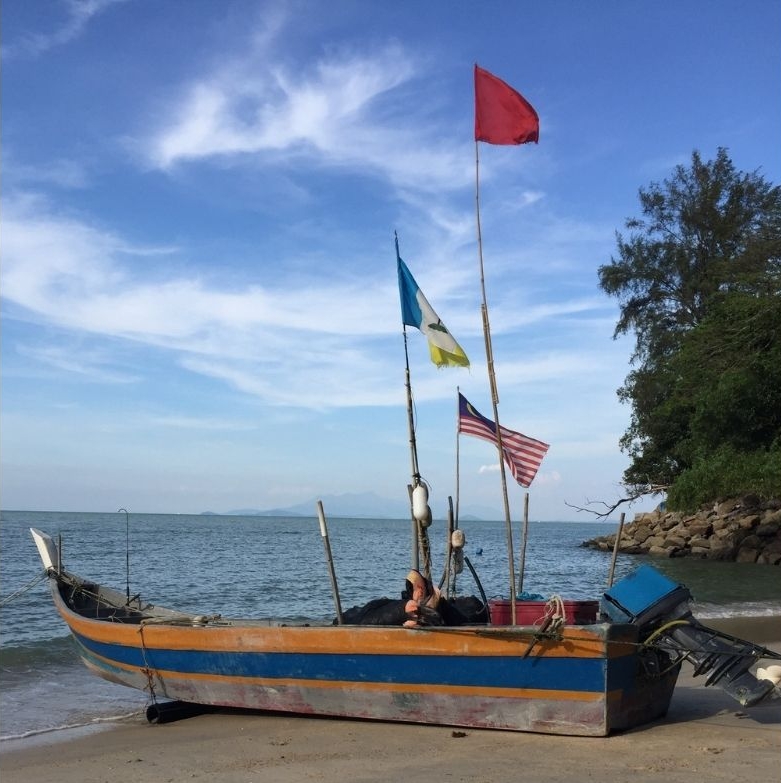
The small and simple fishing boat
At around the same time I discovered the Miami Cafe, I also visited another beach in the same coastal strip that had no restaurants or cafe’s. I went for a stroll along the beach and came to a shack and what appeared to be a fisherman’s house. There was a small fishing boat tied to a bouy just off shore, some nets and general fishing gear lying around on the sand, with further traces of people living there.
While I was taking it all in, a young friendly voice called out to me. That’s when I first met Azizan. He appeared to be in his early 20’s. We started a conversation and he explained that his father was living right there on the beach and would go out every day very early in the morning to fish in the sea off Penang’s north coast. His father was sitting nearby, apparently fixing some nets and a person later revealed to be his mother was busy cooking something.
He kindly offered me a soft drink, a ‘100Plus’ which is a local sports drink, then introduced me to mum and dad. Following some small talk, and after enjoying the experience, I said farewell and promise to come back.
A few weeks later I returned carrying some snacks and soft drinks and once again we sat down and had a great chat. The conversation eventually turned to the 2004 Boxing Day tsunami. On that day as usual, his father and some other fisherfolk went out to sea just to the north of Penang as they would usually do.
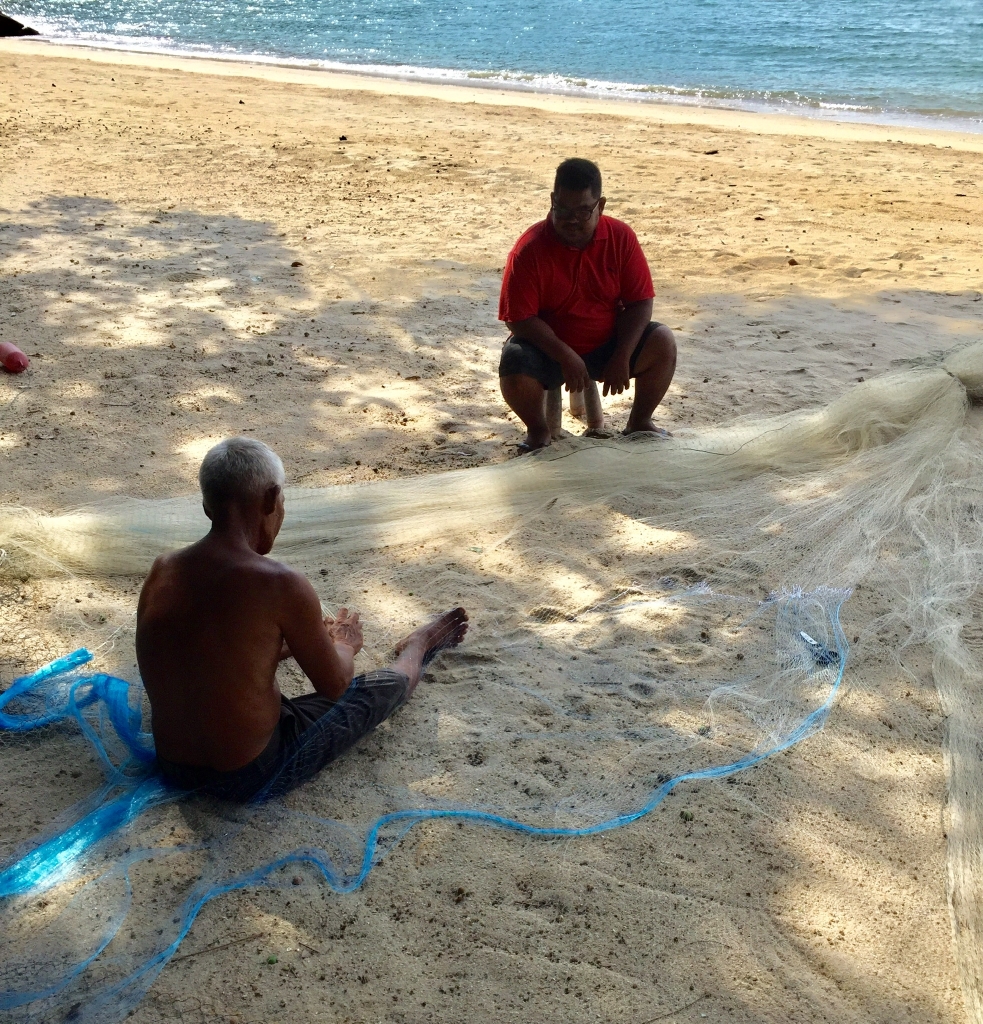
Dad and his nets
When the tsunami first approached, they were shocked by the large swell that came through, heading straight towards the island. Apparently they had a mobile phone and were able to call ahead to the family, warning them that a large wave was coming in. On receiving this news, Azizan and his family who were still on shore were able grab a few things and move to higher ground, warning other people that a big wave was approaching.
Their family and friends were out of trouble but others were not so lucky, as news of the approaching wave did not travel fast enough. A popular food stall area nearby, now called the tsunami village, took the full force of the first wave. A lot of people died.
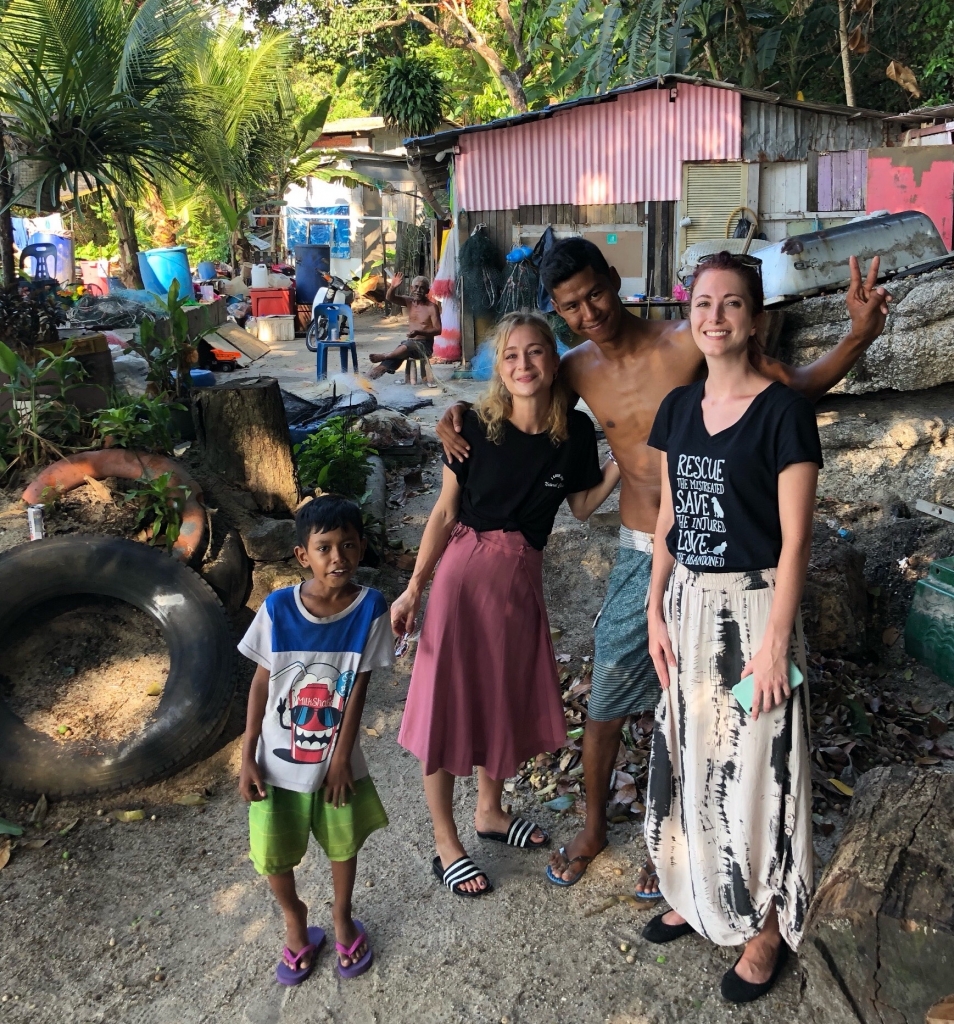 If by chance his father had not been out to sea that day, the family probably would all have perished.
If by chance his father had not been out to sea that day, the family probably would all have perished.
Following the disaster and the cleanup, the government relocated a lot of the people who lived in dwellings on the foreshore to buildings further inland from the coast. Azizans father decided to stay and re-establish his shack on the beach where, to the best of my knowledge, he remains today.
In 2019 two of my daughters came to visit me in Penang and we paid a visit to the family. Azizan was thrilled, but perhaps a little too much as he added one of them to his social media account and kept messaging her. That was awkward.
Then Covid struck, everything was locked down and priorities shifted. Trips to the beach to visit the fishing family fell by the wayside. I lost touch. However, the last time I checked, Azizan had moved to an apartment closer to Georgetown looking for work and was no longer helping with the family fishing.
Two very different stories with one common thread. Through my travels in recent years I have had the privilege of meeting some lovely local characters with great life stories to share. There will be a few more coming your way on this site.
Thank you for reading.
